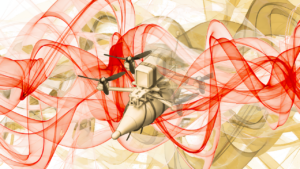Mark Lattimer, director of Minority Rights Group International, writes that if oil-rich Kurdistan goes the way of Baghdad and Mosul, all hopes of Iraqi unity will go with it [“Democracy’s Last Stand,” The Guardian, 1 May 2007]. Lattimer insists that America’s failures in Iraq stem, not from military shortcomings, but from “expending its credibility in support of a ‘democratic’ Iraqi government now close to collapse and from the beginning rotten to the core.” I have written before about the importance of eliminating corruption from government. It stands alongside security as one of the fundamental principles required for economic development. Lattimer believes that drawing Kirkuk fully into the Kurdish fold is essential for ensuring Kurdistan’s continued prosperity. He continues:
“With the government in Baghdad falling apart and America’s days in Iraq numbered, the Kurds realise that unless they act soon, their chances of bringing Kirkuk into Iraqi Kurdistan will soon slip away. In April the Iraqi cabinet agreed a voluntary package giving Arabs who were moved to Kirkuk 20m dinars (£7,500) and a plot of land in their area of origin if they agreed to leave. Non-Kurdish political parties reacted angrily to the plan, and inter-communal violence has increased. In fact, Kirkuk has become so dangerous that persuading Kurds to return may prove a lot harder than persuading others to go. Without a political solution soon, it seems inevitable that the situation will become as bad as in Baghdad or Mosul, and could threaten the security of Kurdistan itself. That would be a grave loss. Kurdistan is unique in Iraq in enjoying relative security. The Kurdish units of the Iraqi army you see at checkpoints are disciplined, and there has been little of the sectarian bloodletting that has stained the rest of the country. A sentiment heard repeatedly outside Kurdistan is that it is worse now than under Saddam. The failure to bring even minimal security to Iraq has rendered the attempts to install democracy next to worthless. Only in Kurdistan has the rule of law enabled democratic institutions to develop. ‘What we have here is the only success story in Iraq,’ I was told last week by Dr Mohammed Ihsan, the Kurdish minister responsible for negotiating on Kirkuk. ‘If the Americans don’t sort out the Kirkuk issue, they will lose what they built here.'”
As I noted yesterday, the situation in Kurdistan is not ideal; but it is a heck of lot better than conditions elsewhere in Iraq. The Kirkuk issue does loom large (mostly because of its economic importance tied to oil), but I don’t believe that Kurdistan will rise or fall on that issue alone. Lattimer may be right that Kurdistan looks like democracy’s last stand in Iraq; but I prefer to think of it as democracy’s first stand in Iraq. I don’t think democracy will shrink to Kurdistan; more likely, it will spread from Kurdistan if economic conditions there continue to improve.




